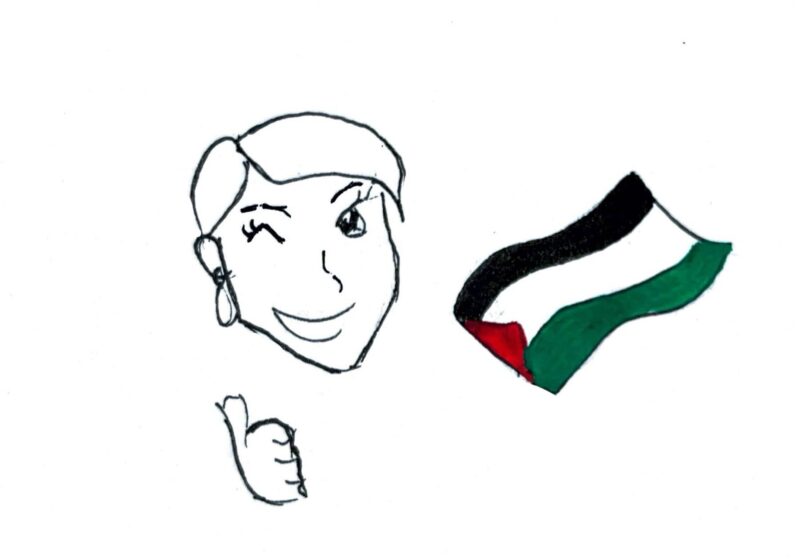I’m an American Born Chinese. I wouldn’t say I’m more American than Chinese or vice versa. My character was equally molded by both cultures.
At home, my mother spoke only Chinese, and only made Chinese food. On weekends, she dropped me off at Chinese school. But outside my house, I was more influenced by American culture.
At school, I ate Lunchables, spoke English with my classmates, and fangirled over boy bands like One Direction.
So. here I am, a single product of two very different cultures.
For a long time, I was comfortable with being from two cultures. I was fluent in “Chinglish”.
However, as I grew up, social and political tensions between America and China rose, causing a parallel tension between the two corresponding cultures..
I think the first time I realized the segregation between my two cultures was when I was visiting family in China over summer. While we fought over some milk, my cousin asked me, “When are you going to go back home, to America?”. But to the five-year old me who had gone back to China every half year for school, both China and America were my homes.
The gap between my two identities increased as tensions between the two countries continued to rise. In America, I faced racism and microaggressions for the first time. In China, I constantly felt left out because I was considered more American than Chinese.
During Chinese events, the host would sometimes make fun of America. My relatives would look at me and laugh, asking me how I felt. But how could I respond to a question like that? If I said I was uncomfortable, it would just make me seem even more American in their eyes. But I couldn’t pretend to laugh either. So, I often just stayed quiet and smiled.
Sometimes, I’d leave China feeling less Chinese than when I went in.
Now, when I watch Chinese dramas — one of my favorite hobbies — I get a little uncomfortable when they give Americans the stereotypes of being cheaters and sore losers. Maybe I’m a little too sensitive about these things, but regardless, incidences like these make me feel more disconnected from my Chinese side.
This past summer, on my way back to Rochester, an individual at the airport kept asking my father and I where we were from. When I told him I was from the United States, he didn’t seem to believe me.
He then proceeded to ask the dreaded question, “But like where are you really from, like, where were you born?”. And no matter how specific our answer, the man still seemed a little doubtful.
Moments later, he turned to us and asked, “So, like, where in Japan should I visit? Do you have any recommendations?”.
He then went on the ask us if we knew where Tampa, Florida was and if we knew anything about it. It’s moments like these when I realize that sometimes my appearance makes it hard for me to seem fully American.
These experiences made me question if I was more Chinese or American.
I felt like I was neither. So, if I wasn’t completely one culture or the other, what was I? In China, I would feel more American, while in America, I would feel more Chinese There was no balance between my two cultures.
But this doesn’t mean that I don’t embrace both my identities. I love both my Chinese cultural identity and my American one. I just need to learn to love them together.



